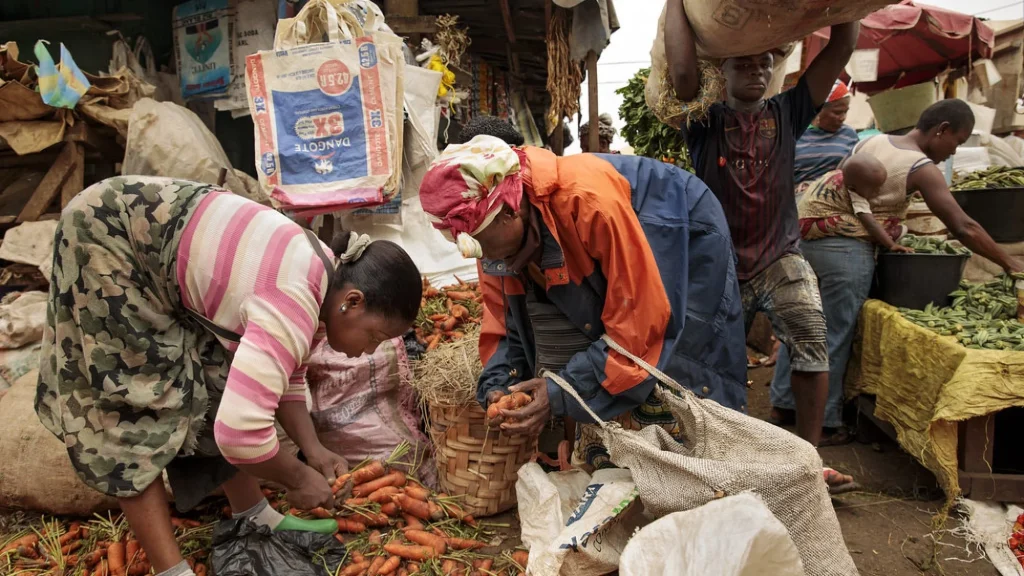Sustainable development is a critical goal for Africa’s economic growth, and the informal economy plays a significant role in achieving this objective. In this data-driven blog post, we explore the intersection of the informal economy and sustainable development in Africa. By leveraging data and insights, we delve into the contributions of the informal sector towards environmental sustainability, social inclusion, and economic resilience, highlighting the importance of integrating informal businesses into sustainable development strategies.
Informal Economy and Environmental Sustainability: The informal economy has the potential to contribute positively to environmental sustainability in Africa. Many informal businesses engage in resource-efficient practices, recycling, and waste management. By analyzing data on informal waste pickers, for example, we can estimate the amount of waste diverted from landfills and the environmental benefits derived from their activities. Recognizing and supporting these environmentally conscious practices can foster a more sustainable future.
Social Inclusion and Informal Entrepreneurship: Inclusive economic growth is a key component of sustainable development. The informal economy plays a significant role in providing opportunities for marginalized populations, including women, youth, and migrants. By leveraging data on informal entrepreneurship, we can identify the extent to which informal businesses contribute to social inclusion and economic empowerment. This information guides policy interventions that promote access to education, skills training, and support networks for informal entrepreneurs.
Resilience and Economic Stability: The informal economy has demonstrated its resilience in the face of economic shocks and uncertainties. By analyzing data on the contributions of the informal sector to GDP and employment, we can understand its role in providing economic stability and absorbing shocks. This resilience is particularly vital in times of crisis, as informal businesses often provide a safety net for individuals and communities. Integrating informal businesses into sustainable development strategies can enhance overall economic resilience.
Data-Driven Policy Interventions: Data plays a crucial role in informing policy interventions that integrate the informal economy into sustainable development strategies. By analyzing data on informal businesses’ contributions, policymakers can design targeted initiatives that enhance access to finance, provide social protection, and foster skills development. These interventions can promote the formalization of informal businesses, ensuring they receive the support needed to contribute effectively to sustainable development goals.
Promoting Partnerships and Collaboration: Data-driven approaches also facilitate partnerships and collaboration among stakeholders involved in sustainable development. By sharing and analyzing data, entrepreneurs, government agencies, and development organizations can identify areas of mutual interest, align efforts, and promote joint initiatives. These collaborations leverage the collective expertise and resources to address sustainability challenges and maximize the impact of interventions.
Measuring Progress and Monitoring Impact: Data provides a means to measure progress and monitor the impact of sustainable development initiatives involving the informal economy. By establishing robust monitoring and evaluation frameworks, stakeholders can track the outcomes and assess the effectiveness of interventions. This data-driven approach ensures accountability and allows for evidence-based decision-making, ultimately driving more targeted and impactful sustainable development efforts.
Conclusion: The informal economy in Africa has a significant role to play in sustainable development. By leveraging data and insights, stakeholders can recognize the contributions of informal businesses towards environmental sustainability, social inclusion, and economic resilience. Integrating the informal sector into sustainable development strategies requires data-driven policy interventions, partnerships, and monitoring mechanisms. By recognizing the potential of the informal economy and leveraging its strengths, Africa can foster inclusive and sustainable development that benefits individuals, communities, and the environment.


